- Home
- Rachel Caine
Unknown Page 6
Unknown Read online
Page 6
He glared at me. "Breathe for him."
I didn't move. "It's no use."
"Fuck you, Cassiel, just do it!"
This time, I didn't answer at all. His look should, by rights, have melted the life from me as well, but then he dismissed me and bent to breathe into the boy's slack mouth himself.
It took a long few moments for him, Earth Warden though he was, to admit what had been obvious to me from the beginning: The boy's life force was not struggling to remain, it was long departed. Destroyed. No matter what efforts were put in, he would not be miraculously waking.
Luis sat back against the metal wall of the van, breathing hard, eyes unfocused, and then pressed the heels of his hands against his eyes. He was trembling. I wanted to reach out to him, but I knew he wouldn't welcome the touch, not at this moment; instead, I reached down and gently closed the boy's open eyes, then lifted his heavy, limp body and put him back on the seat of the van.
When it finally came, Luis's voice was rough and uneven. "What the hell, Cass. What the hell is happening?"
"He was expendable," I said. "Pearl didn't get ahead of us; she used him to attack us. When he became of no further use, she used him to power the ice on the roadway; she hoped that you would be unable to avoid a wreck, perhaps fatal. She ripped so much power from him that he couldn't survive it. She killed him to try to get to us."
"I get that," he said raggedly. "But why kill him? Why now?"
I shrugged. "She doesn't have the respect for young life that you do," I said. "You are all insects to her, regardless of your circumstances. It means nothing to her to kill. Sometimes, she does it for her own amusement." Or she did, once, in my distant memories.
I had, in thousands of years past, watched Pearl stand at the leading edge of a storm of destruction, tall and wild, only vaguely holding to a shifting human shape that glittered and flowed on the wind. Before her a wide, pleasant valley stretched out, covered in thick yellow flowers. There was a settlement there of creatures who were not humans, as we would later recognize them, but shared most of the same ancestry.
Pearl rode the wave of destruction down the hill, sweeping everything before her in a storm of ashes and death. She was terrible and beautiful, and insane.
It was the last settlement of its kind, and Pearl destroyed every last life in it, erasing the existence of that race of prehumans, erasing any trace that they had ever been. She unmade them, leaving behind the clean, green meadow, the nodding flowers, and an Earth that remained, for a time, the sole province and plaything of the Djinn. Before the rise of humans.
I had watched. Watched, and done nothing. Only later had I acted, when we all realized just what Pearl had become. When her selfish desires no longer ran in concert with our own.
And I had made the fatal mistake of defeating her, but not fully destroying her.
"She isn't at her full strength," I said, almost to myself. The Pearl of that ancient memory was a primal force, a goddess, something that woke shivers in me even now. "If she were, she'd destroy us without a thought. Us, the entire city, the nation. She doesn't understand restraint, and the losses mean nothing."
"Great," Luis said. "And this bitch has Isabel."
"She wants Ibby alive. Ibby could not be in a safer place for now." Far safer than she would be with us, at least until we worked out what it was Pearl was doing. "We should perhaps worry about ourselves."
"Trust me, I'm worried." Luis turned his gaze back, unwillingly, to the boy. "Why didn't she just kill us the way she did him?"
"I don't think she can," I replied. "Yet. The boy must have trained at the Ranch, where she kept the children. It's likely that she has access to those who've surrendered their will to her in ways that she doesn't to others, like us, who resist. But she's powerful, and growing more powerful with every passing day. The more who surrender their wills to her . . ." I shook my head. There was no point in taking it further; he understood my concerns fully.
"If she's killed her only connection to us, maybe we can make it to Las Vegas before she gets another one in position to take us on."
"Maybe," I said slowly. Something did not seem right about that, however, and it dawned on me precisely what it would be. "Luis. We have to leave him."
Silence in the van, deep and weighty. The wind outside rattled sand against the windows, and the metal frame rocked slightly from the pressure. Luis's face was blank, his dark eyes hot.
"I'm going to pretend you didn't just say that."
I raised my eyebrows. "Why?"
"Because if I seriously thought you would dump this poor kid like trash at the side of the road--"
"Luis," I interrupted him. "Think. She did not have to kill him. Why would she? He was perfectly placed to destroy us, if we gave him time to recharge, and he is young enough that we would have hesitated to fight him with full strength. It would be a significant advantage. She sacrificed a pawn who was in position to destroy us. Why?"
He didn't answer this time. I don't think he understood my point, so I made it clear.
"When we tracked Isabel toward the Ranch where Pearl was keeping her, what did Pearl do?"
He opened his mouth, then shut it, thinking. Then squeezed his eyes shut as if he had a terrible headache.
"She whistled up the cops and accused us of kidnapping," he said. "Nothing the cops will respond to faster than an endangered, abducted child."
"And when they arrive," I said softly, "they find a boy dead in the back of our van."
He understood, then, and leaned forward to press both hands to his face. He had a record with the police, the kind of thing that predisposed them to suspicion. His own niece had disappeared.
This would not go well for him.
I continued, only because I felt I had to drive the point home. "She intended this to slow us down, confuse us, delay us. Separate us. As you pointed out before, the police can be defeated, but they are many, and we can't fight them on fair terms. We must run. And we must leave the boy behind."
"Wouldn't do any good. Forensics and shit, don't you watch any of those cop shows on television? They'll link the kid to me sooner or later. Hell, the blanket around him is Isabel's. And my DNA's in the system."
I shrugged. "Those things, I can fix. We leave him, and I remove all traces and links to us, both physical and aetheric. But we must do it now, quickly. She won't be waiting to put her plans in motion. All my skill won't help if the police search the van and find him here. I can't credibly hide him from their sight. It's too small an area."
Luis waited a torturously long second, then wiped a palm over his hand and nodded. He looked ill. I didn't hesitate; I picked up the boy, slid open the door of the van, and jumped down the embankment of the road in a shower of pale dirt, sliding out of sight of the road.
"Wait," Luis said. He'd lunged to the opening in the van, and his knuckles were white where he gripped the door frame. "Don't just--don't just dump him. He meant something to somebody. Like Ibby means something to us. Please. I'm asking you. Treat him--treat him like you care."
That said a great deal about what Luis presumed he knew about me.
I stared at him for a few seconds, saying nothing, and then walked away.
Desert stretched out on all sides, hot and sterile, dotted with the alien shapes of the only plants that could fight the harsh conditions. But the desert was far from empty; no, it throbbed with life, from the busy burrowing insects to the running rabbits to the cunning, coiled snakes.
It was a hard place to leave a child.
I let the sense of bruised hurt fade, and focused on my task. I balanced my burden--suddenly much heavier than its mere physical weight--and set off at a steady run, heading far from the road.
I didn't look back, but I heard Luis say, very quietly, "I'm sorry." I didn't know if he meant it for the boy, or for me.
I made the boy a grave on a hillside, near an overhanging fragrant bush that offered a little shade. It overlooked a valley lush with the rainbow of the
desert--russets, ochers, and tans, dotted with vivid greens and the occasional struggling flower. It had a kind of empty, wild beauty. It was all I could offer as apology, as acknowledgment of what Luis had said--that somewhere in the world, someone was missing this boy.
I stripped away the blanket and carefully, using bursts of Luis's power, removed any traces that might link the boy back to us before wrapping it tightly around him again, in an obscure wish to give comfort. Conscious of the press of time, I knew I couldn't hesitate, yet something made me do just that.
I looked down on the boy's silent, empty face before covering it, and said, "Be at peace, child. I will stop those who hurt you."
Then I leaped out of the grave and triggered a heavy landslide of dirt to cover him. The earth flowed and shifted, thumping heavily down, and I felt myself flinch from the sound. Not a Djinn reaction, a human one, a primal recognition of what it meant to be beneath the ground. To be gone from the world.
I sent out a thought that might have, in a human, been a prayer, as the earth settled in place above him.
I felt the Mother stir slowly and quietly beneath my feet, a sense gifted to me through my connection to Luis--although even Luis rarely felt Her presence so clearly. A tendril only, a whisper, questioning, like a murmur in sleep. This borrowed touch, fleeting and faint, made me drop to my knees and press my hands flat into the sand. I gasped in ragged breaths, begging with all my soul for the blessing of her awareness, of her embrace.
I had forgotten how alone I was, until for a single, shining instant, I was found.
Then sense faded, and I was alone, lost, and afraid once more.
Human, again.
I rose, still breathing hard, and wiped the tears from my dusty face before heading back to the van.
"Here they come," Luis said, less than half an hour later, glancing in the rearview mirror. "You know the drill, Cass. Stay cool."
I nodded. The van was completely empty of any trace of the boy. No doubt there would have been witnesses that saw the boy back near the Rocha house, but one thing I had quickly learned about Luis's neighbors: They were not eager to help the police.
It was highly doubtful any of them would talk.
I looked in the mirror on the passenger side and saw the lurid red and blue lights, and heard the rising wail of a siren. Luis immediately slowed the van, pulling off to the gravel shoulder of the road.
The police car pulled in behind.
It went as Luis had no doubt assumed it would; we were ordered to get out of the van and lean against the hot metal of the vehicle. The policemen--two large men who kept their ready hands near the butts of their guns--searched the van, then each of us. Luis stayed bland and calm. If I fumed at the casual way that they dared to touch me, I kept the reactions carefully hidden. That was one thing that Detective Halley had done for me; he had taught me to handle these official invasions with some semblance of control.
All licenses and registrations were current, and, as I had expected, the police had nothing but an anonymous report on which to question us. Without some physical evidence, they were forced to let us go.
I didn't imagine for a moment that they were happy about it.
Luis let out a slow breath as the police car, its lights still flashing, disappeared behind us. He kept the van to a careful speed, mindful of all road laws, and at the next turning pulled off in the parking lot of a diner that advertised HOME COOKING. It smelled like grease, even from where I sat a hundred feet away.
"Are we turning around?" I asked. I sincerely hoped we weren't stopping for food. Not here.
"I was thinking about it," Luis admitted, then shook his head. "No, it's no good. We need information, and we're not going to get it sitting around waiting for Pearl to send another kid after us. The Ma'at know things we don't. Let's see what we can get out of them."
Activity. I felt a slow smile spread across my face, warm and genuine. "Sounds like fun."
"Your definition of fun sometimes worries me." Dark eyes examined me for a moment. "You want something to eat?"
I shuddered. "Not here."
"You're sure."
"Yes."
"Not even pie?"
I did love pie. I turned my gaze to the diner, and said, "Not here."
"You're too picky."
"Perhaps," I said. "Perhaps I have a better-developed sense of self-preservation than you do."
He frowned. "You just got no appreciation for the little things."
I continued to smile as the hot breeze blew in through the open window, washing away the stench of burning food. "Then how is it that I like pie?" I asked him. "Or that I like you?"
"Hey, I'm not a little thing. Don't you go spreading that rumor."
"Everything is small," I said, and my smile faded.
"Everything. Even me." The memory of that brush of the Mother's touch ached inside me, woke needs that had slept since I'd been cast down into human flesh. I wanted, needed . . .
Luis took my hand in his, a human touch that was irrationally comforting. "Stay with me, Cass. We're going to find a way out of this."
I knew the way out. I kept my gaze trained on the desert as it swept by outside my passenger window, and I tried not to think about how much destruction lay along that path to victory.
I would lose him.
I would lose them all in winning, and it would be such a fierce, cold victory. A world empty, new, swept clean of the complications of humanity. The way Pearl had swept the world clean, once. For the good of the Djinn, or so we had pretended.
It had not been worth it then. I was far from sure that it would be worth it now.
Las Vegas was a dizzying wonderland of lights that reminded me of nothing so much as the aetheric. It was filled with spinning, brilliant colors that seemed to blend one into another, too many for the eye to take in. It seemed to burst out of the ground in fantastic shapes, more a defiance of nature than its product. Where Albuquerque often seemed shaped by its environment, Las Vegas seemed to deliberately ignore the land upon which it sat.
There was a certain magnificent idiocy in that, a denial of all the reality so evident around us. Humans. I would never truly understand them, even if I survived in this body a hundred years. That made me wonder . . . would I grow old? Develop infirmities and diseases? Could I actually create life, the way humans did, to live on after my time on the Earth?
The thought made me involuntarily look at Luis, who was navigating the van through traffic with the ease of someone who was a frequent visitor to this town. He glanced back. "What are you thinking?" he asked.
"I don't think you would want to know," I said, very truthfully. I couldn't imagine Luis would find it comforting to consider the prospect of a child, much less being the father of my child.
Although, if the earlier events had been at all indicative of his feelings, and not simply raw physical needs let loose by the whiskey, then . . . perhaps. But it seemed not to be the time to pursue the thought.
"Okay," he said. "So we're going to meet with the head guy for the Ma'at. You're going to mind your manners, right?"
"Of course."
From the rude noise he made, Luis evidently did not believe me. That was, perhaps, appropriate. "Just try not to destroy anything. Or make enemies out of the only real allies I've been able to scrounge up. It's not like we're neck deep in people willing to help us, you know."
The Ma'at, from all I knew of them, were not the strongest allies that might be had in any case, and I was far from certain they were really interested in helping us. They were people who, though having some tendency toward wielding the same powers as the Wardens, had been disqualified for admission into their ranks--usually because their powers were not deemed significant enough to matter. In some cases, though, they were powerful indeed, and had somehow managed to slip through the complex net that identified potential Wardens as young adults, which meant they lived a furtive double life, and were jealous of their secrets.
The Ma'at w
ere unique in that they had set out from the beginning to work with the Djinn--not to hold them as slaves, as the Wardens did, but to seek out those who were free and might be interested in an alliance. There were few of these, and almost all were New Djinn, not the elders like me. In fact, I knew of only one of the True Djinn who had taken such a direct interest in humanity: Venna, who often presented herself as a child when in human form. Venna was ancient and extraordinarily powerful. I suspected the child-form to be a complex sort of joke I did not fully understand.
Las Vegas burned in alien colors as we entered the main part of the city--brilliant greens, acid yellows, burning reds and pinks. The patterns and hues rippled and changed in brilliant, mesmerizing patterns, and I stared at them without blinking, fascinated by this manifestation in the physical world of what I so loved about the realms available to the Djinn. Crude it might be, but the fact that humans found this mesmerizing as well showed a connection between humanity and the Djinn that I'd never really considered.
I hardly noticed the crush of strangers passing on the streets, or the river of wheeled metal rushing around us; I hardly even noticed the stench of exhaust and rubber that never seemed far absent from these clusterings of humanity. That was a measure of how delighted I was by the triumphant blaze of light around us.
And then, quite suddenly, we were facing something that I recognized with an almost physical shock--a shock that quickly faded, because the familiarity was only a surface impression. This was not the magnificent carved Sphinx, nor the towering majesty of a pyramid; these were modern reproductions, lacking in the sophistication of those long-dead artisans, or the sanctity with which those works of religious fervor had been imbued.
These were cheap copies, packaged and sold as mere entertainment, and just for a moment the glitter of the place fell away, and I grew angry. Angry that humans valued their history so little. Angry that even their greatest achievements could be made so commonplace.
I wondered what would happen if I melted the false Sphinx into a messy heap of painted slag, and then remembered--regretfully--that I had promised Luis not to destroy anything.

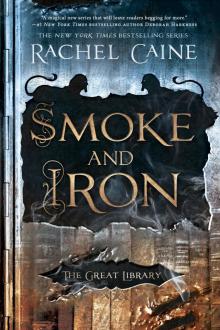 Smoke and Iron
Smoke and Iron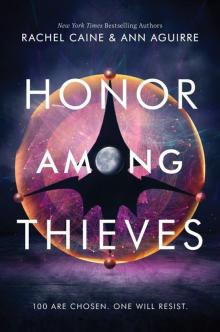 Honor Among Thieves
Honor Among Thieves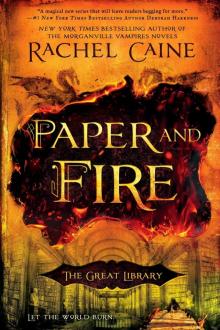 Paper and Fire
Paper and Fire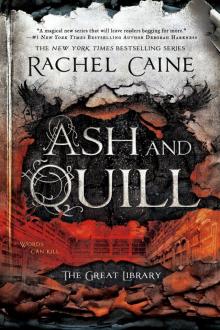 Ash and Quill
Ash and Quill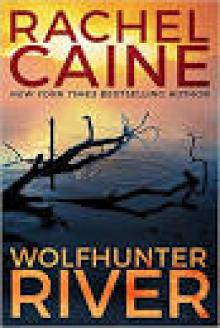 Wolfhunter River (Stillhouse Lake Book 3)
Wolfhunter River (Stillhouse Lake Book 3)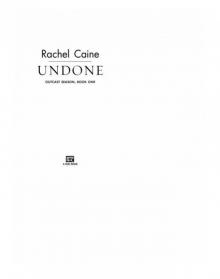 Undone
Undone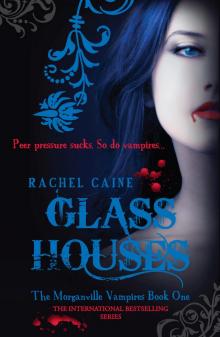 Glass Houses
Glass Houses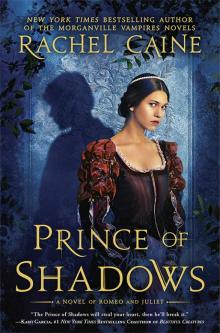 Prince of Shadows
Prince of Shadows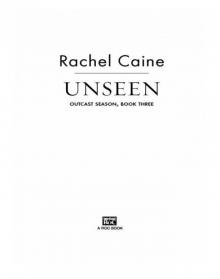 Unseen
Unseen Midnight at Mart's
Midnight at Mart's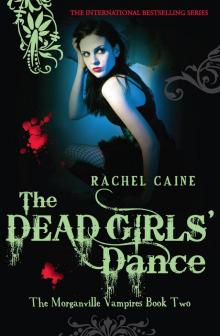 The Dead Girls Dance
The Dead Girls Dance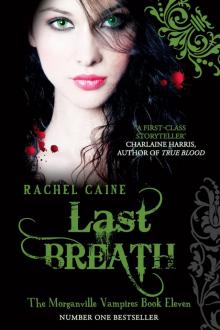 Last Breath
Last Breath Stillhouse Lake
Stillhouse Lake Daylighters
Daylighters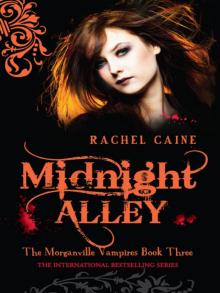 Midnight Alley
Midnight Alley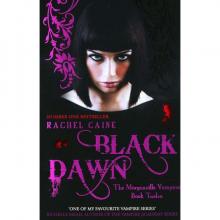 Black Dawn
Black Dawn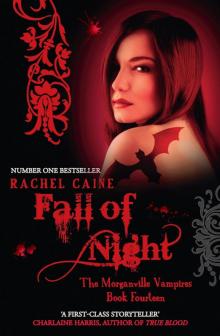 Fall of Night
Fall of Night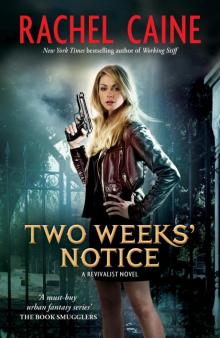 Two Weeks Notice
Two Weeks Notice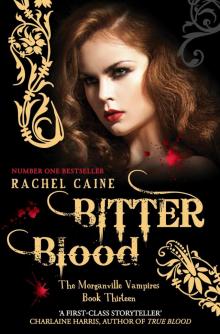 Bitter Blood
Bitter Blood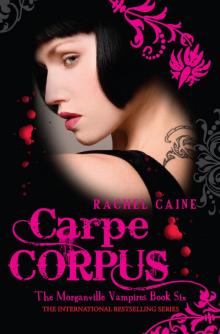 Carpe Corpus
Carpe Corpus Kiss of Death
Kiss of Death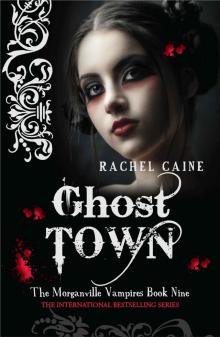 Ghost Town
Ghost Town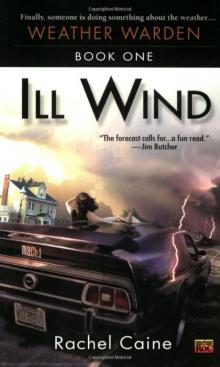 Ill Wind
Ill Wind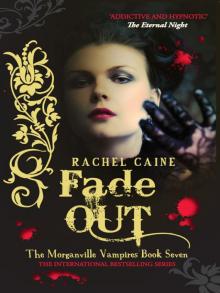 Fade Out
Fade Out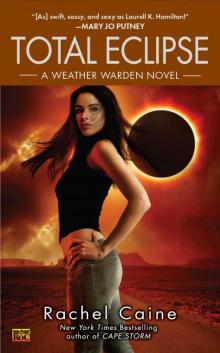 Total Eclipse
Total Eclipse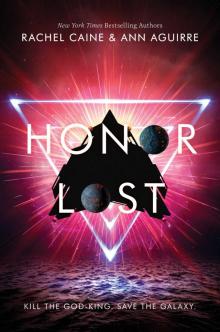 Honor Lost
Honor Lost Thin Air
Thin Air Black Corner
Black Corner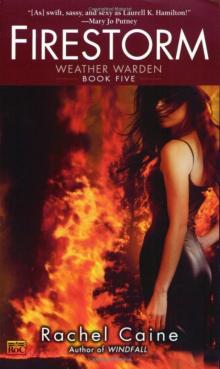 Firestorm
Firestorm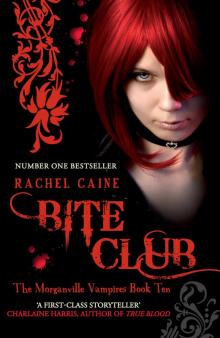 Bite Club
Bite Club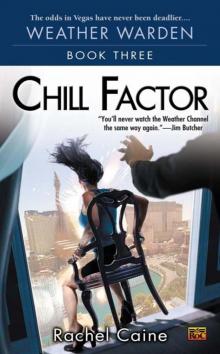 Chill Factor
Chill Factor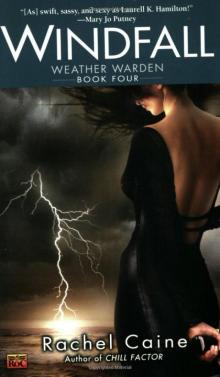 Windfall
Windfall Oasis
Oasis Devils Bargain
Devils Bargain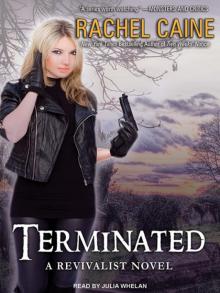 Terminated
Terminated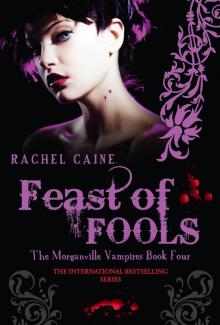 Feast of Fools
Feast of Fools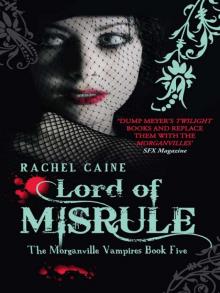 Lord of Misrule
Lord of Misrule Devils Due
Devils Due Ladies' Night
Ladies' Night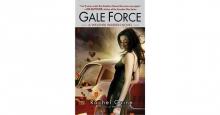 Gale Force
Gale Force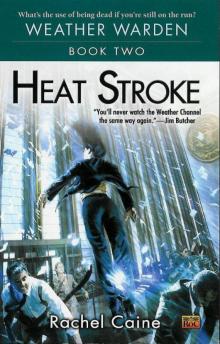 Heat Stroke
Heat Stroke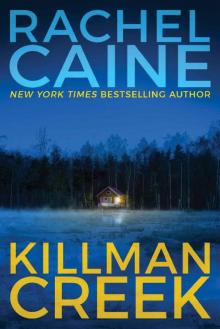 Killman Creek
Killman Creek Sword and Pen
Sword and Pen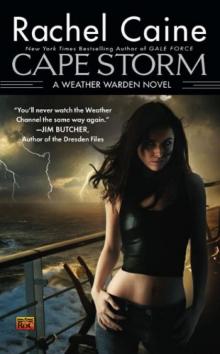 Cape Storm
Cape Storm Unbroken
Unbroken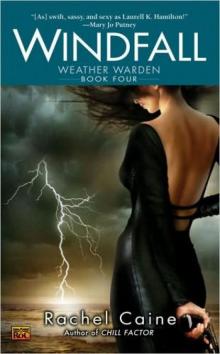 Windfall tww-4
Windfall tww-4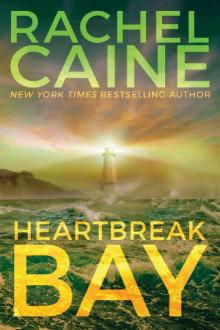 Heartbreak Bay (Stillhouse Lake)
Heartbreak Bay (Stillhouse Lake) Daylighters: The Morganville Vampires
Daylighters: The Morganville Vampires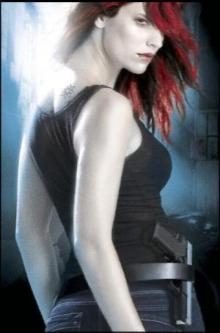 Duty
Duty Honor Bound
Honor Bound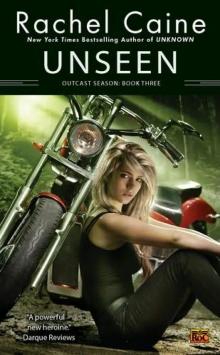 Unseen os-3
Unseen os-3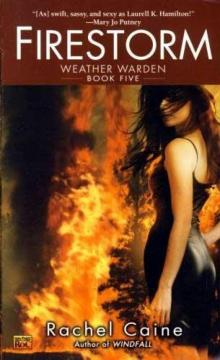 Firestorm tww-5
Firestorm tww-5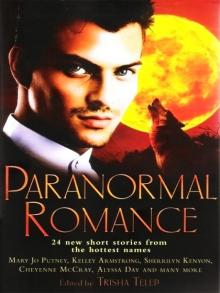 Blue Crush
Blue Crush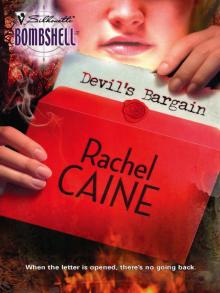 Devil s Bargain
Devil s Bargain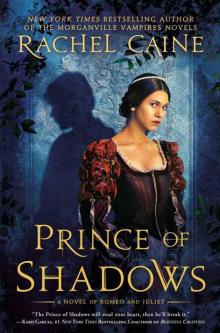 Prince of Shadows: A Novel of Romeo and Juliet
Prince of Shadows: A Novel of Romeo and Juliet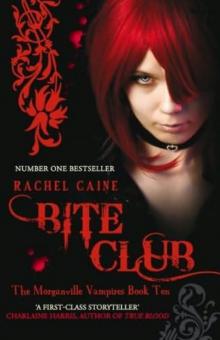 Bite Club mv-10
Bite Club mv-10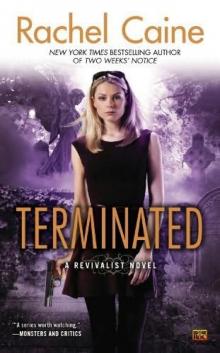 Terminated tr-3
Terminated tr-3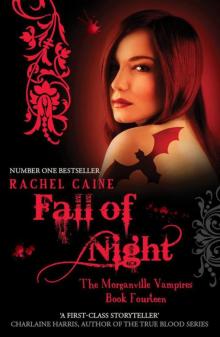 The Morganville Vampires 14 - Fall of Night
The Morganville Vampires 14 - Fall of Night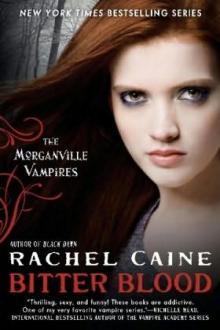 Bitter Blood tmv-13
Bitter Blood tmv-13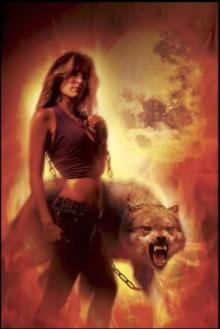 Falling for Grace
Falling for Grace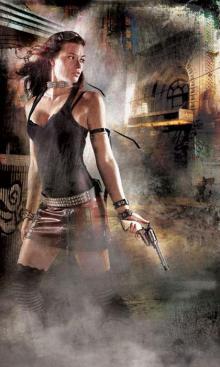 The True Blood of Martyrs
The True Blood of Martyrs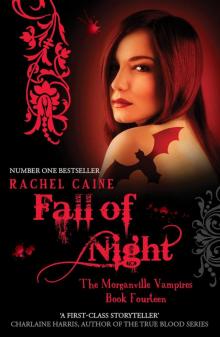 Fall of Night (The Morganville Vampires)
Fall of Night (The Morganville Vampires)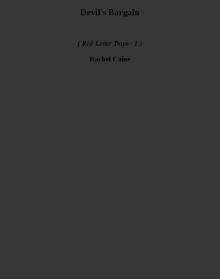 Devil's Bargain rld-1
Devil's Bargain rld-1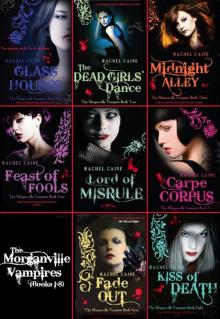 The Morganville Vampires (Books 1-8)
The Morganville Vampires (Books 1-8)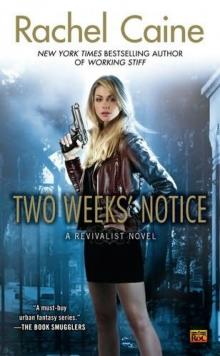 Two Weeks' Notice tr-2
Two Weeks' Notice tr-2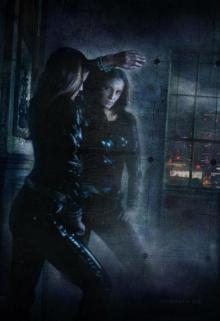 An Affinity for Blue
An Affinity for Blue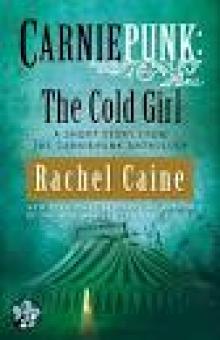 Caine, Rachel-Short Stories
Caine, Rachel-Short Stories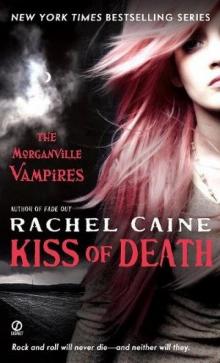 Kiss of Death tmv-8
Kiss of Death tmv-8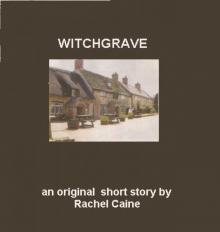 WITCHGRAVE
WITCHGRAVE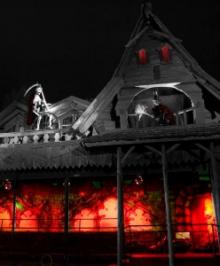 Dark Rides
Dark Rides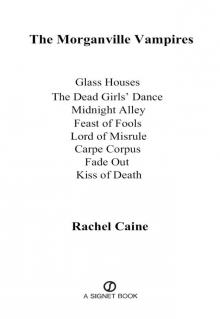 The Morganville Vampires
The Morganville Vampires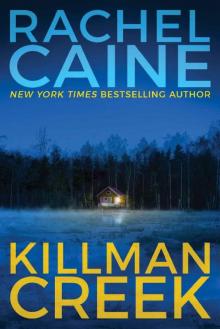 Killman Creek (Stillhouse Lake Series Book 2)
Killman Creek (Stillhouse Lake Series Book 2)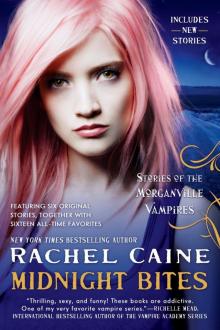 Midnight Bites
Midnight Bites Line of Sight
Line of Sight![Morganville Vampires [01] Glass Houses Read online](http://i1.bookreadfree.com/i1/03/30/morganville_vampires_01_glass_houses_preview.jpg) Morganville Vampires [01] Glass Houses
Morganville Vampires [01] Glass Houses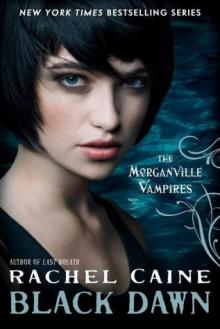 Black Dawn tmv-12
Black Dawn tmv-12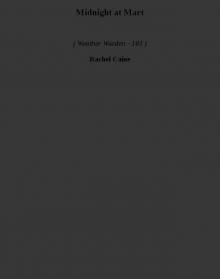 Midnight at Mart ww-103
Midnight at Mart ww-103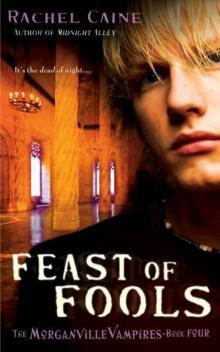 Feast of Fools tmv-4
Feast of Fools tmv-4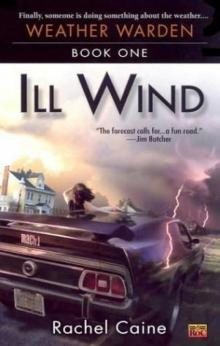 Ill Wind tww-1
Ill Wind tww-1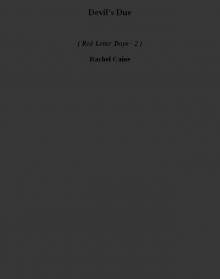 Devil's Due rld-2
Devil's Due rld-2 Black Dawn: The Morganville Vampires
Black Dawn: The Morganville Vampires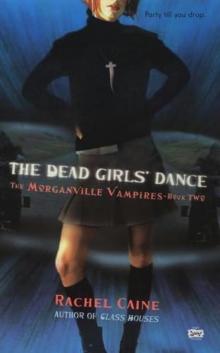 Dead Girls' Dance tmv-2
Dead Girls' Dance tmv-2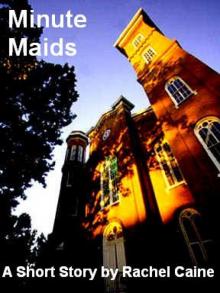 Minute Maids
Minute Maids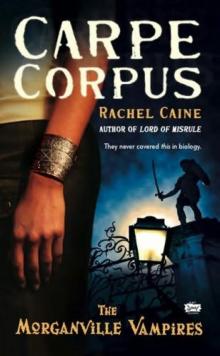 Carpe Corpus tmv-6
Carpe Corpus tmv-6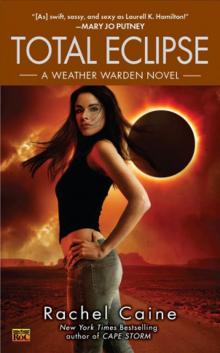 Total Eclipse tww-9
Total Eclipse tww-9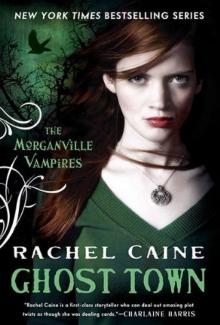 Ghost Town mv-9
Ghost Town mv-9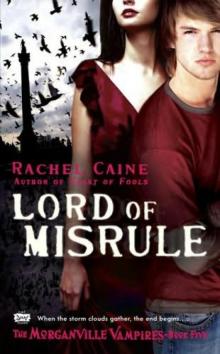 Lord of Misrule tmv-5
Lord of Misrule tmv-5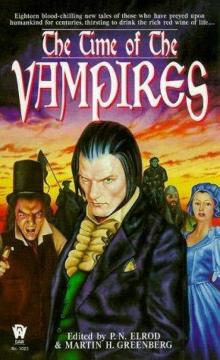 Faith Like Wine
Faith Like Wine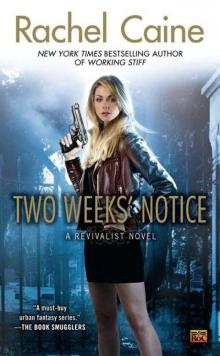 Two Weeks' Notice: A Revivalist Novel
Two Weeks' Notice: A Revivalist Novel Daylighters tmv-15
Daylighters tmv-15 Stamps, Vamps & Tramps (A Three Little Words Anthology)
Stamps, Vamps & Tramps (A Three Little Words Anthology)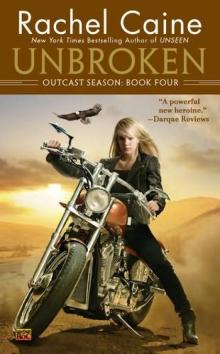 Unbroken os-4
Unbroken os-4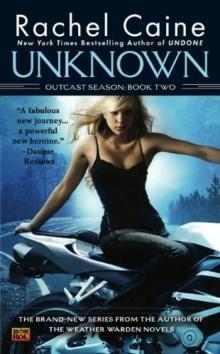 Unknown os-2
Unknown os-2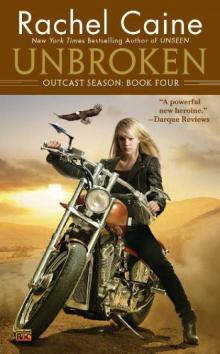 4 - Unbroken
4 - Unbroken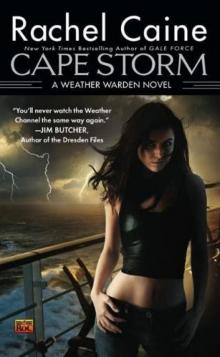 Cape Storm tww-8
Cape Storm tww-8 Last Breath tmv-11
Last Breath tmv-11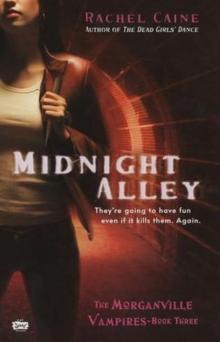 Midnight Alley tmv-3
Midnight Alley tmv-3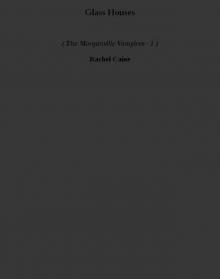 Glass Houses tmv-1
Glass Houses tmv-1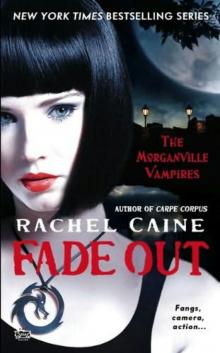 Fade Out tmv-7
Fade Out tmv-7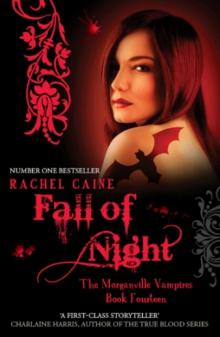 Fall of Night tmv-14
Fall of Night tmv-14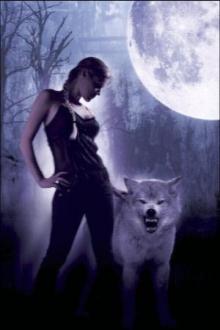 Godfellas
Godfellas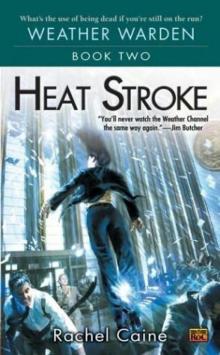 Heat Stroke ww-2
Heat Stroke ww-2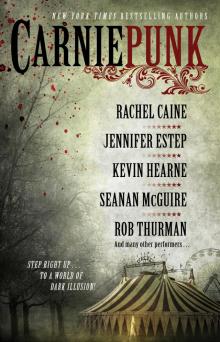 Carniepunk
Carniepunk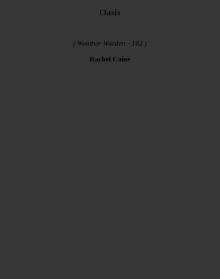 Oasis ww-102
Oasis ww-102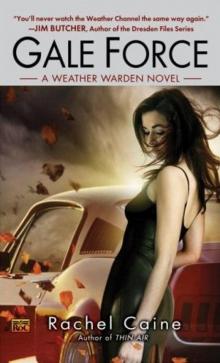 Gale Force tww-7
Gale Force tww-7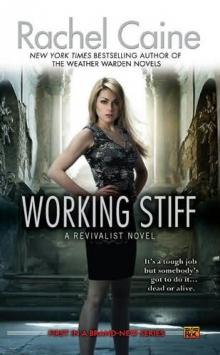 Working Stiff tr-1
Working Stiff tr-1